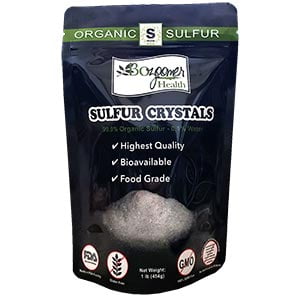
DON'T MISS THE SAVINGS!
GET $5 OFF Your 1st Order!
USE COUPON CODE: 5OFF1ST

DON'T MISS THE SAVINGS!
GET $5 OFF Your 1st Order!
USE COUPON CODE: 5OFF1ST
$22.95
Cognitive Non-GMO Omega-3 Fish Oil especially DHA as the brain needs this to function and protects against excitotoxicity and reduces inflammation. The dose is 3,000 mg per day. 1,200mg EPA and 900mg DHA.
In stock
Cognitive Non-GMO Omega-3 Fish Oil especially DHA as the brain needs this to function and protects against excitotoxicity and reduces inflammation. The dose is 3,000 mg per day. 1,200mg EPA and 900mg DHA.
Free radicals and inflammation are the main causes of excitotoxicity and your body must have these defenses. Powerful for increasing energy to the brain reducing inflammation, and deficiencies play a major role in neurodegenerative diseases. You should consider adding this to your Cognitive MIND supplement program.
There are many health benefits of omega-3 fatty acids. Research shows strong evidence that the omega-3s EPA and DHA can boost heart health and lower triglycerides. And studies are showing that omega-3 fatty acids may help with other conditions — rheumatoid arthritis, depression, and many more.
Just what are omega-3 fatty acids exactly? How much do you need? And what do all those abbreviations EPA, DHA, and ALA mean? Here’s a rundown of the essential omega-3 facts you need to know.
Omega-3 Fatty Acids: Basics
Omega-3 fatty acids are considered essential fatty acids. We need them for our bodies to work normally. Because essential fatty acids (ALA, DHA, EPA) are not made in the body or are inefficiently converted from ALA to EPA and DHA, we need to get them from our diet or a supplement.
Omega-3s have many health benefits. Omega-3s are thought to play an important role in reducing inflammation throughout the body — in the blood vessels, the joints, and elsewhere. However, Omega-3 supplements (EPA/DHA) may cause the blood to thin and cause excess bleeding, particularly in people taking anticoagulant drugs.
There are several types of omega-3 fatty acids. Two crucial ones — EPA and DHA — are primarily found in certain fish. Plants like flax contain ALA, an omega-3 fatty acid that is partially converted into DHA and EPA in the body. Algae oil often provides only DHA.
Experts say that DHA and EPA — from fish and fish oil — have better-established health benefits than ALA. DHA and EPA are found together only in fatty fish and algae. DHA can also be found on its own in algae, while flaxseed and plant sources of omega-3s provide ALA — a precursor to EPA and DHA, and a source of energy.
Omega-3 Fatty Acids: Fact Sheet
Omega-3 Fatty Acids: Food Sources. While foods containing omega-3 fatty acids have health benefits, some — like oils and nuts may be high in calories. Because the fat in walnuts turns out to be omega-3 fatty acids. That’s an especially important form of fat if you’re a type 2 diabetic or have any blood sugar issues. Research proved that frequent walnut eaters live longer and avoid heart disease. And another study reveals the secret behind this walnut-linked longevity: Healthy arteries. Eating just 14 walnuts a day improved the function of cells that line blood vessels. When these cells are healthy, they’re like an ironclad police line protecting your heart. They may help control inflammation, prevent blood clots, and help control your blood pressure.
Cognitive Omega-3 Fish Oil important facts:
Our Omega-3 Fish Oil may also increase thermogenesis-meaning, you will naturally burn more calories per day and create an anti-catabolic effect (meaning it prevents muscle breakdown). They may also have an anti-lipogenic effect-meaning it reduces fat storage and serves as an anti-inflammatory.
Cognitive Omega-3 Fatty Acid Tips:
| Brand | Cognitive DRD |
|---|
Only logged in customers who have purchased this product may leave a review.
Tellus gravida ipsum aut facilisis tempus at et aliquam estsem.
Non pulvinar aenean ultrices lectus vitae imperdiet vulputate a eu.
Aliquet ullamcorper leo mi vel sit pretium euismod eget libero.
Nullam iaculis vestibulum arcu id urnain pellentesque volutpat quis.

Subscribe and grab 20% OFF!
Reviews
There are no reviews yet.